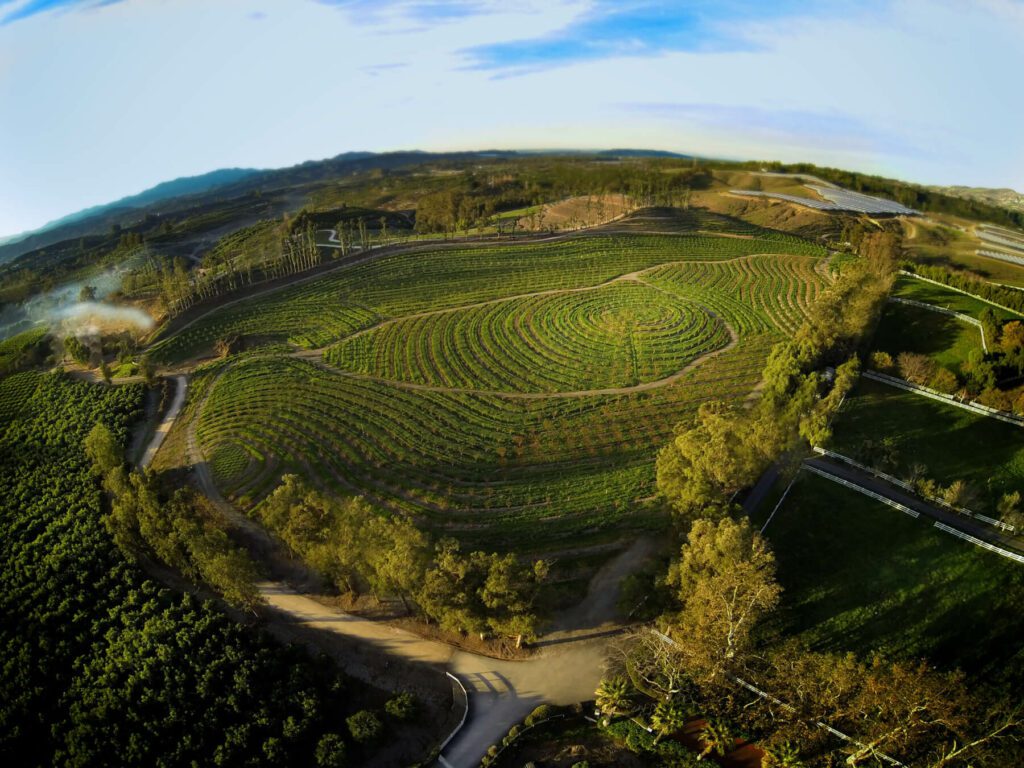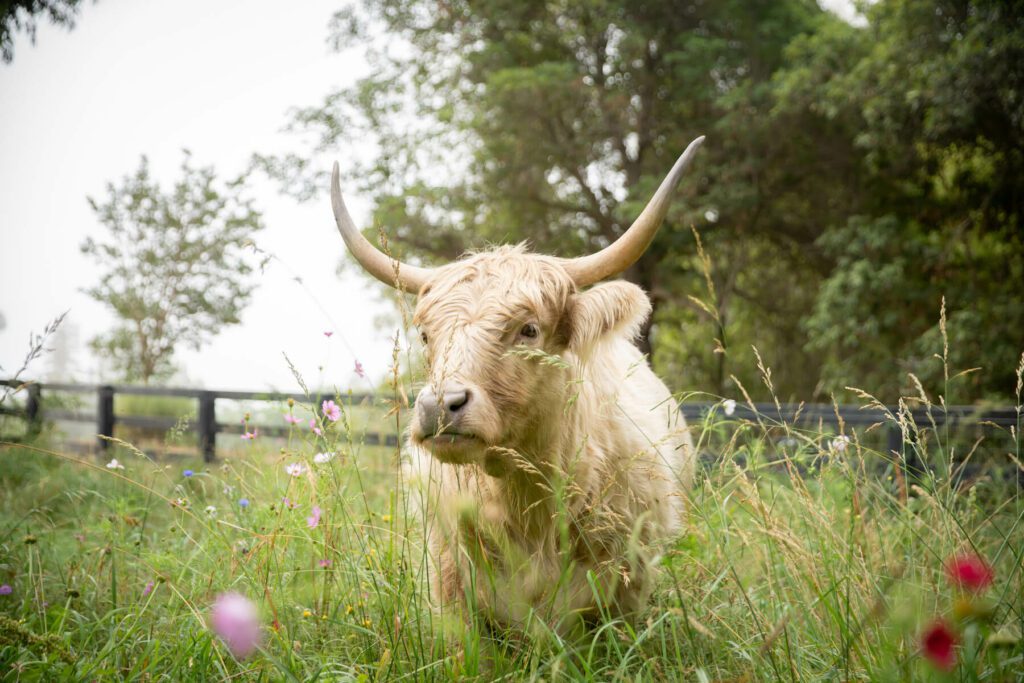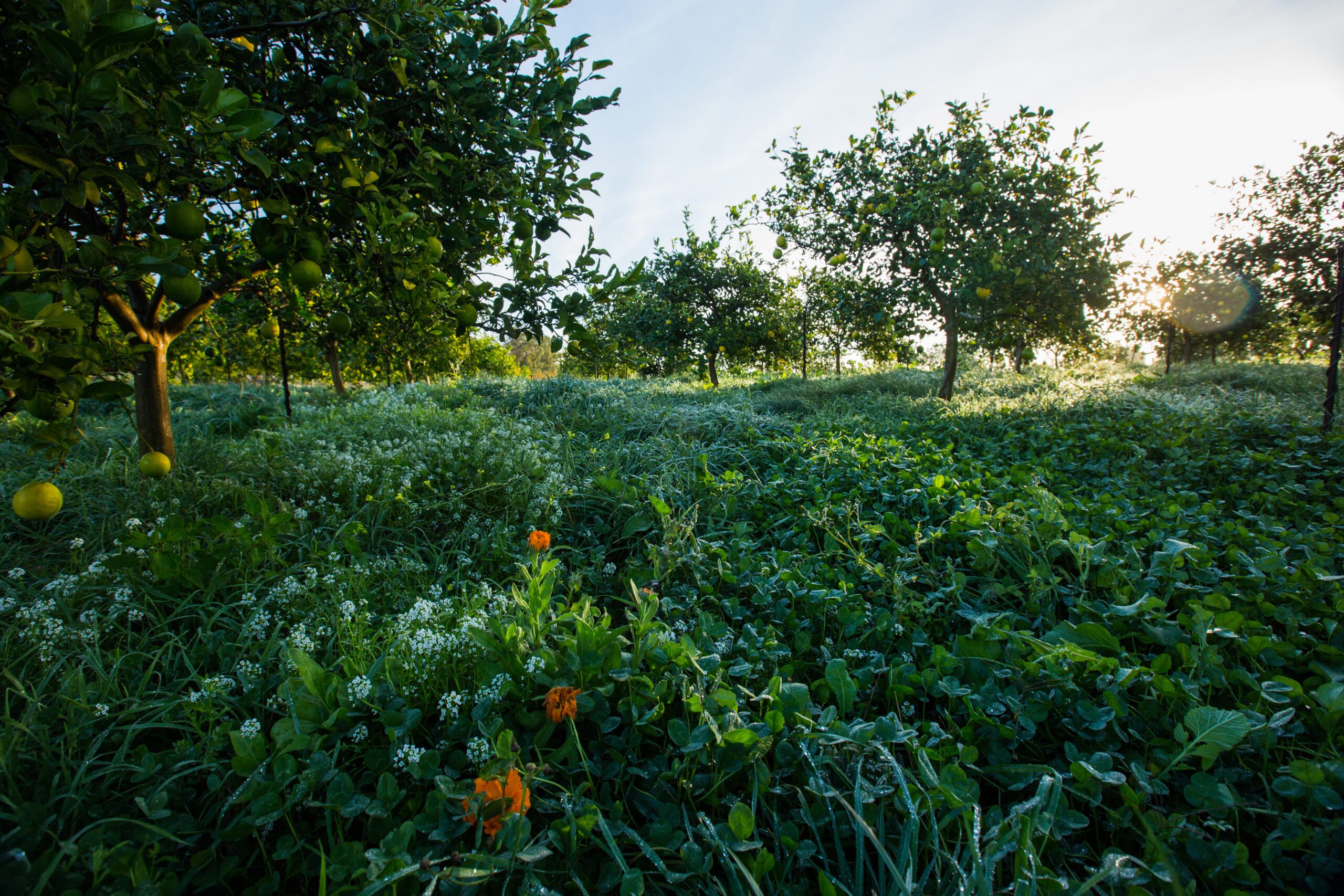When the agricultural industry commercialized, one of the first casualties was the diversity of plants. Monocultures took precedence. Soils that thrived on nutrients from copious and diverse perennials started only receiving their carbon exudates from one type of annual species at a time. With the increasing lack of diversity, soils began a cycle of degradation which has led to a decline of overall health in ecosystems and ultimately, human health. A huge step towards restoring soil health is to bring back multi-species plant systems that will feed our soil food web the diverse diet it needs to thrive.
The first time I stepped onto the land of Apricot Lane Farms, I was completely blown away— the sheer abundance of plant species growing on this modest 234 acre farm is staggering! Between the orchards, market garden, pastures, and native habitats, the farm takes plant diversity to a level I had not experienced before.
 The orchards boast over 80 varieties of fruits with an understory of cover crops to keep the soils cool in our Southern California climate. As this farm has evolved over the last ten years, microclimates are much better understood, providing context and intentionality behind each and every plant or tree that gets placed in the ground. For each region, we are choosing specific trees and cover crop mixes that we have found thrive together in that space. In our exceptionally diverse “Fruit Basket” orchard, there’s our mediterranean hillside that is well suited for pomegranates, persimmons, figs and olives; a citrus zone with meyer lemons, grapefruits and mandarins; and a stone fruit sector with plums, apricots, pluerries, and peaches; all of these fruits are benefiting from each other and the multispecies cover crops grown below them.
The orchards boast over 80 varieties of fruits with an understory of cover crops to keep the soils cool in our Southern California climate. As this farm has evolved over the last ten years, microclimates are much better understood, providing context and intentionality behind each and every plant or tree that gets placed in the ground. For each region, we are choosing specific trees and cover crop mixes that we have found thrive together in that space. In our exceptionally diverse “Fruit Basket” orchard, there’s our mediterranean hillside that is well suited for pomegranates, persimmons, figs and olives; a citrus zone with meyer lemons, grapefruits and mandarins; and a stone fruit sector with plums, apricots, pluerries, and peaches; all of these fruits are benefiting from each other and the multispecies cover crops grown below them.
Similarly, the 2.1 acre market garden produces over 100 varieties of heirloom vegetables, herbs and edible flowers— and that is just the diversity of the production plants. Due to the exposed nature of the garden, specific cover crops were planted to optimize the bed’s resting periods. These include plants like sunn hemp to suppress pernicious nematodes, phacelia to attract pollinators, and sorghum sudan grass to add biomass and penetrate the compacted soils.

![]() Our pastures were once constantly grazed horse pens that had the life beat out of them. Now we rotate planting annual warm and cool season mixes that include sorghum sudan grass, trefoil, plantain, clovers, ryegrass, orchardgrass, and chicory–all soil builders and excellent forage for our livestock. This diversity in the pastures allows our animals to flourish within our multi-paddock adaptive grazing system. Since we’ve made so much progress rejuvenating our pasture soils, our focus is now shifting to cultivating stands of perennial grasses and forages that will help us weather the seemingly ever-present drought.
Our pastures were once constantly grazed horse pens that had the life beat out of them. Now we rotate planting annual warm and cool season mixes that include sorghum sudan grass, trefoil, plantain, clovers, ryegrass, orchardgrass, and chicory–all soil builders and excellent forage for our livestock. This diversity in the pastures allows our animals to flourish within our multi-paddock adaptive grazing system. Since we’ve made so much progress rejuvenating our pasture soils, our focus is now shifting to cultivating stands of perennial grasses and forages that will help us weather the seemingly ever-present drought.
Additionally, over 25 acres of the farm is dedicated to native habitats. Apricot Lane Farms has introduced over 140 new native plant species, bringing the total to well over 200 species. By encouraging a native ecosystem, we reap the benefits of attracting wildlife, from pollinators ranging from hummingbirds to hundreds of native bee species, to large natural predators and so much more.
These examples of plant diversity throughout the entire farm has brought this farm’s ecosystem back to life. The benefits are clearer and clearer to me as we see more keystone animal species coming to make this land their home. It’s hard to articulate how special it is for me to see land in my childhood town be so full of life and energy. It gives me hope that the story of this farm and those of so many farmers around the world can inspire others to take a look around at the land and see its potential rather than its doom.
This article first appeared in the 9th Edition of Green Cover's Soil Health Resource Guide.
Also check out the 10th edition, our latest Soil Health Resource Guide, over 90 pages packed with scientific articles and fascinating stories from soil health experts, researchers, farmers, innovators, and more! All as our complimentary gift to you, a fellow soil health enthusiast!

